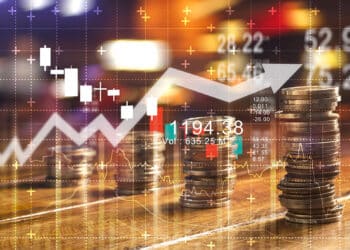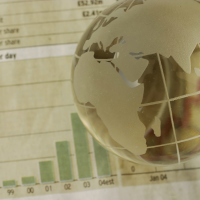UPDATE: Evergrande Group’s main unit, Hengda Real Estate Group Co Ltd confirmed on Wednesday it would service an interest payment on the Shenzhen-traded 5.8 per cent September 2025 bond on 23 September. Hengda’s Shenzhen exchange filing did not, however, mention the offshore bond also due Thursday. At the same time, the People’s Bank of China (PBoC) injected 120 billion yuan into the banking system after concerns over Evergrande.
China’s second-biggest property developer, Evergrande, is feared to be on the brink of collapse, with consequences said to be dire for global markets.
While cracks in Evergrande’s giant façade did not occur overnight, with years of unrestrained expansion leading to consequences, an impending US$83.5 million interest payday, due on its March 2022 bond, is being closely watched following admission from the company that it may be in trouble.
Namely, as told to Bloomberg by inside sources, Evergrande likely missed interest payments due Monday to at least two of its largest bank creditors. Moreover, it is likely to default on an upcoming 29 September payment worth a further US$47.5 million for March 2024 notes.
Ultimately, the company, which boasts 1,300 building projects across China, is saddled with debt exceeding $400 billion, while its share price tumbles, losing as much as 80 per cent since the start of this year.
With debt to reportedly 171 domestic banks and 121 other financial firms, including UBS and BNP Paribas, a collapse would not only hurt China but the rest of the world.
Speaking to InvestorDaily, AMP’s head of investment strategy and chief economist, Shane Oliver, said Evergrande’s collapse and liquidation could have a systemic impact like that of Lehman Brothers in 2008 in terms of a flow on to the Chinese property and financial sectors and its economy.
And while Mr Oliver is fairly confident Evergrande’s miniscule exposure to foreign credit means insignificant impact for global banks, there are other dire consequences including financial contagion.
“An event that [affects] global banks via their exposure to Evergrande seems unlikely because they don’t have enough exposure, some of them might, but from what I’ve seen most global banks aren’t overly exposed to the point that it would cause major problems for them,” Mr Oliver explained.
“The biggest risk I think is the ramifications for the Chinese economy, which then has a global flow on effect.”
With China’s share in world GDP at almost 20 per cent in 2020, its significance to the global economy is paramount. Ultimately, anything that interferes with economic growth in China, threatens to derail the global economy.
“The property market by some estimates makes up a quarter of the Chinese economy, so if there is a huge fallout and Evergrande has to liquidate all of its properties and sell them all at a cheap price, that leads to problems for other property developers if the market becomes oversupplied with these properties, which then leads to a collapse of property construction in China.
“You get this downward spiral to the Chinese economy as a result, and then that has a flow on effect on global growth and then a flow on to commodity demand so the iron ore price falls and then it has a flow on to other commodities as well. So, the global impact comes through the economic impact rather than financial channels,” Mr Oliver explained.
In regard to Australia, ultimately a drop in iron ore prices would hit our miners, many of whom haven’t been having a great run with Fortescue Metals down 38 per cent since August, while BHP and Rio Tinto have been suffering setbacks of 29 per cent and 27 per cent, respectively.
Too big to fail?
But, before we get ahead of ourselves and predict a global crisis, Dr Oliver is fairly confident that due to Evergrande’s sheer size and significance to the Chinese economy, the government will intervene with a plan to restructure.
“Whilst Chinese authorities may allow a partial default, I don’t think they would tolerate a complete collapse such that the business has to liquidate all assets. That’s why I think ultimately there would be some sort of forced restructuring, much like it occurred with Bear Stearns,” Mr Oliver opined.
He noted that the Chinese would have learnt a lesson or two from the Lehman Brothers’ scenario.
“The Chinese authorities are more sensitive to everything which threatens growth in China so they would be more likely to undertake some sort of restructuring, not necessarily a bailout where they give out money and things keep rolling on, but restructuring the debt which enables the business to ultimately trade out of its woes but obviously comes at a huge penalty to Evergrande,” Mr Oliver said.
The issue, however, for the government will be balancing between risking economic pain and risking false market hope built on the presumption that the government would jump to save every company that ends up failing due to its own greed.
As we wait to see how the, potentially, biggest dilemma since the GFC unfolds, all we can do is trust in China’s ability to contain a crisis.
Read more: Evergrande’s 2nd-biggest shareholder plots exit







